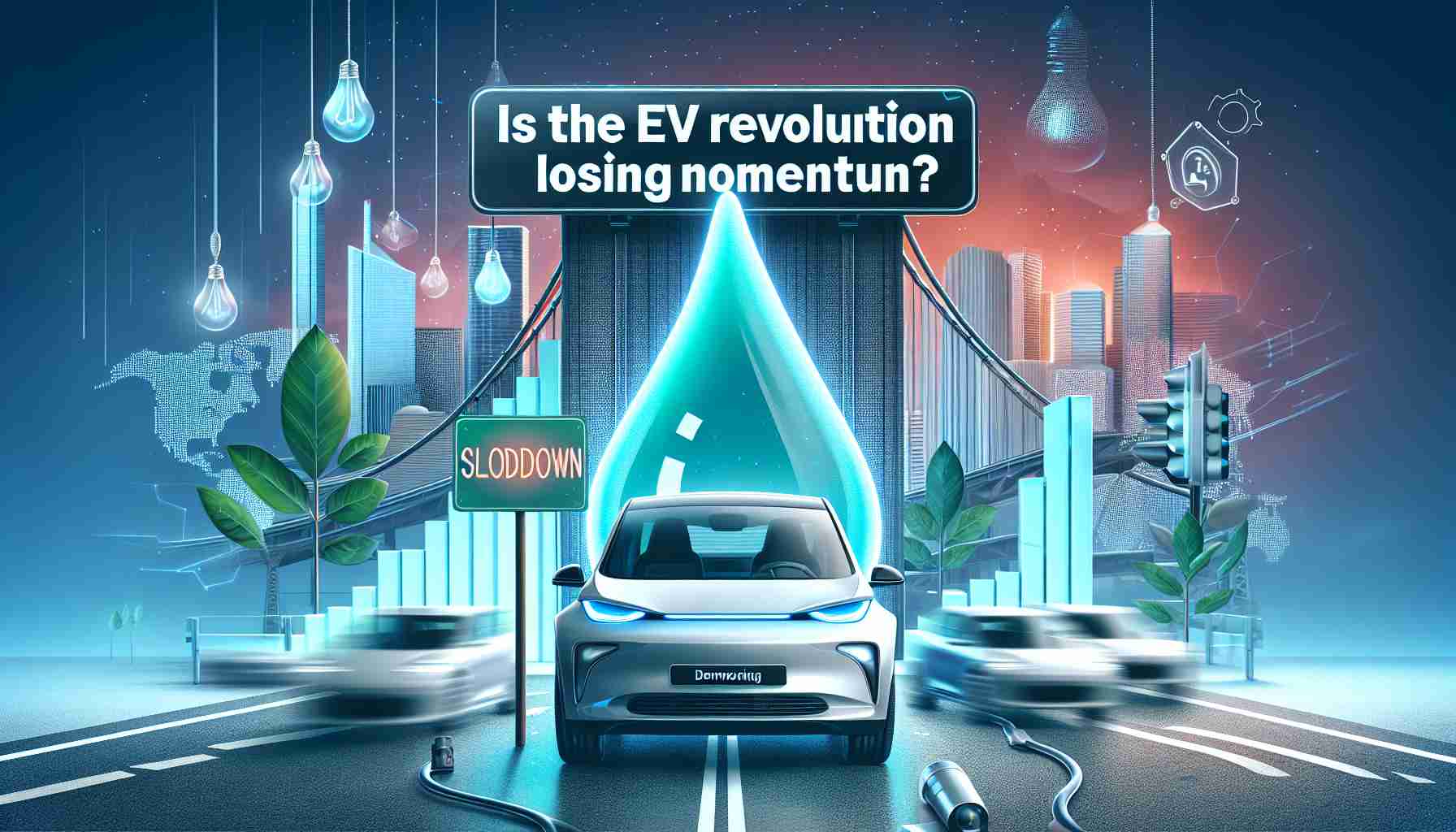Pod Point Faces Financial Challenges Amidst Shifting EV Landscape
Pod Point, a prominent player in the electric vehicle charging sector, has announced that its projected revenues for 2024 will fall significantly short of expectations, primarily due to disappointing private EV sales in the UK. The firm anticipates delivering revenues of £53 million, a reduction from the previously estimated £60 million. This downturn has also forced Pod Point to drastically lower its cash reserves, which now stand at £5.3 million, compared to an anticipated £15 million.
The company, owned by energy giant EDF, highlighted a tough market environment compounded by reduced installations of home charging points. Even with the introduction of the zero-emission vehicles mandate, which aimed for 22% of sales to be purely electric, the UK saw only 19.6% of new car sales meeting that criterion last year, leading to fines for major car manufacturers.
Despite these challenges, Pod Point noted growth in business customer sales, although the private market remains under pressure from rising household costs. The situation for 2025 appears similarly bleak, with estimates also falling below market expectations.
In response to its financial challenges, the company plans to leverage a £30 million credit facility provided by EDF, suggesting that it is making strides in managing its costs even as it navigates a difficult landscape for private electric vehicle purchases.
Challenges in the EV Charging Sector: Wider Implications for Society and Environment
The financial struggles facing Pod Point are not merely a reflection of internal mismanagement or market fluctuations; they shine a light on larger dynamics within the electric vehicle (EV) ecosystem that have profound implications for society, culture, and the global economy. The decline in private EV sales in the UK raises questions about consumer sentiment and the effectiveness of government incentives aimed at promoting cleaner transportation solutions. With energy costs soaring and inflation impacting disposable income, potential buyers may be reevaluating their commitments to green technologies, which ultimately stymies the transition toward a more sustainable future.
This situation carries significant environmental ramifications. A slowdown in the proliferation of charging infrastructure curtails the adoption of electric vehicles, which are pivotal for meeting carbon reduction commitments. As nations strive to achieve their net-zero goals, delays in scaling up EV adoption could lead to missed targets and increased greenhouse gas emissions. The sluggish pace of the UK market echoes a broader trend where inadequate infrastructure raises doubts about the feasibility of EV integration into daily life, affecting consumer confidence and investment.
Looking ahead, the challenges Pod Point faces might hint at future trends in the EV market—specifically, a need for enhanced governmental support and strategic partnerships among stakeholders. As public sentiment shifts, it may require innovative solutions that encompass not just the vehicles themselves, but also how society perceives and integrates them. The long-term significance of these financial hurdles will echo in policy debates, investment strategies, and environmental agendas, calling for a reevaluation of how we approach sustainable technology.
Pod Point’s Financial Struggles: What Lies Ahead in the EV Market?
## Overview of Pod Point’s Current Financial State
Pod Point, a key player in the electric vehicle (EV) charging industry, is grappling with substantial financial challenges as it faces a dip in expected revenues and reduced cash reserves. The company, owned by EDF, has adjusted its projected revenues for 2024 to £53 million, down from an earlier estimation of £60 million. This revision comes in the wake of a downturn in private EV sales in the UK, a trend that has forced Pod Point to revise its financial outlook significantly.
## Trends in Electric Vehicle Sales
The UK’s electric vehicle market is experiencing a complex landscape. Although there was a push for 22% of new car sales to be purely electric under the zero-emission vehicle mandate, only 19.6% of new registrations met this goal last year. This shortfall has led to penalties for major manufacturers and highlights the challenging environment for EV adoption.
Moreover, the financial pressures faced by households have contributed to a stagnation in home charging point installations, exacerbating Pod Point’s revenue decline. Despite these setbacks, there’s a noted increase in sales to business customers, showcasing a potential area for growth amid the struggles within the private market.
## Features and Innovations from Pod Point
Despite financial hurdles, Pod Point continues to innovate in the EV charging sector. The firm has implemented several features to enhance customer experience, including:
– User-Friendly App: A mobile application that allows users to locate charging stations easily and monitor their charging status in real-time.
– Smart Charging Solutions: Pod Point is advancing its smart technology for home and commercial charging, focusing on energy management to reduce costs and enhance efficiency.
– Sustainability Initiatives: The company is committed to sustainability and reducing its carbon footprint as part of the broader EDF initiatives.
## Pros and Cons of Pod Point’s Offerings
Pros:
– Established network of charging infrastructure across the UK.
– Continuous advancements in smart charging technology.
– Strong backing from EDF, a significant energy player.
Cons:
– Current financial instability may affect future investment in infrastructure.
– Growing competition in the EV charging market.
– Dependence on private EV sales, which are currently under pressure.
## Future Predictions
Looking ahead, Pod Point’s revenue estimates for 2025 do not show much promise either, suggesting that operational strategies will need to pivot swiftly to adapt to market changes. The company’s reliance on a £30 million credit facility from EDF as a response to financial difficulties may provide immediate relief but raises questions about long-term financial stability.
As the EV market evolves, Pod Point must navigate these challenges and potentially explore new avenues for revenue, such as expanding into international markets or developing partnerships with automotive manufacturers.
## Conclusion
Pod Point faces a critical juncture in its operations amidst a rapidly evolving EV landscape. The company must capitalize on emerging business customer trends, fortify its infrastructure, and consider innovative funding solutions to thrive against formidable challenges in the electric vehicle sector.
For more insights on the electric vehicle charging market and Pod Point’s strategic direction, visit Pod Point’s official site.









